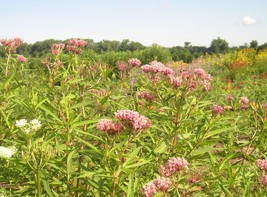
5 Questions to ask Plant Purveyors to see if they are truly selling “Bee-Friendly Plants”
We want them to learn what is in their potting soil:s first, so we can discover if neonicotinoids are in the soils of plants being sold as “bee-friendly”, secondly, we want to see what other systemic pesticides they might be selling. Hopefully we learn and get to educate about the destructive side effects of neonicotinoids before finishing. The order of the questioning matters, and are in my order of asking:
Question 1) Do you carry bee and pollinator-friendly plants? Bee balm, echinacea, hyssop, cosmos, zinnia, asters, lobelia, wild geranium, squill, hyacinths, liatris, lavender, etc.
If Yes, then ask Ques.#3.
If No, then I’ll ask if they would carry bee-friendly plants and pledge not to sell systemic pesticides in the plant pots so those plants can truly become pollinator-friendly. If they seem not to know what is in their soils then education might help them decide. Continue on to question #2.
Question 2) Do you know what is in your potting soil?
If Yes, ask what materials are in the potting mix? To be pollinator-friendly the mix should not have any pesticide, esp. not a neonic.. See list below in #3.
If No, ask Ques. #3.
Question 3) Is it a simple mix of sphagnum moss, perlite with some pesticide- free fertilizer or does it have a pesticide in the soil? If simply moss, perlite and a little fertilizer then thank them for helping pollinators who are in great need of protection..
If No, then what is in your soil?
Question 4) If they have systemics in their potting soil ask what kind? {Acetamiprid, Clothianidin, Dinotefuran, Imidacloprid, Thiamethoxam – (see CA.gov list)}. If they are selling these hazardous products in potting soils and other garden/farm products to control insects, ask if they would stop selling these highly products that kill bees and butterflies?
Question 5) Ask if they would join with other garden centers and nurseries who do not use these products and pledging not to in the future?
If Yes, thank them for helping to save our primary pollinators who only need wholesome food and places to lay their eggs.
